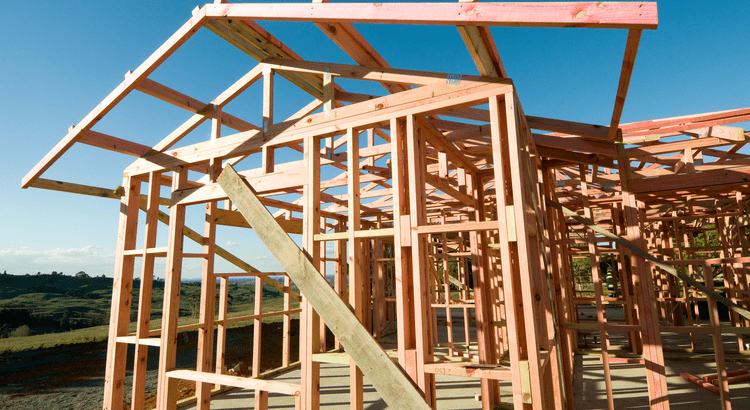5 Red Flags to Watch for When Buying a Home


Introduction
Buying a home is one of the most significant financial decisions you will make. It’s easy to get caught up in the excitement of finding your dream home, but it’s crucial to approach the process with a keen eye. While a home may look perfect on the surface, there are potential red flags that could lead to costly repairs and financial strain down the road. Understanding these warning signs can help you make an informed decision and avoid unexpected surprises.
In this guide, we’ll go over five major red flags to watch for when buying a home, why they matter, and what you can do to protect yourself during the home-buying process.
1. Foundation and Structural Issues
One of the most critical aspects of any home is its structural integrity. Foundation and structural problems can be expensive to repair and could indicate deeper issues with the property.
Signs of Structural Problems:
-
Cracks in Walls and Ceilings: Hairline cracks are normal, but large, uneven cracks can indicate foundation movement.
-
Doors and Windows That Stick: If doors and windows are difficult to open or close, it may suggest shifting in the foundation.
-
Uneven or Sloping Floors: A noticeable slope in the flooring can be a sign of structural issues.
-
Bowed Walls or Gaps Between Walls and Floors: These can indicate serious foundation issues that need professional assessment.
How to Protect Yourself:
-
Hire a professional home inspector to thoroughly assess the foundation.
-
If foundation issues are detected, consult a structural engineer for an expert opinion.
-
Consider negotiating with the seller for repairs or a price reduction if significant structural issues are found.
2. Water Damage and Mold
Water damage is one of the most concerning issues in a home, as it can lead to mold growth, wood rot, and structural instability.
Signs of Water Damage:
-
Musty Odors: A damp, musty smell is often a sign of hidden moisture problems.
-
Water Stains or Discoloration: Look for stains on ceilings, walls, and floors, as they could indicate leaks.
-
Peeling Paint or Wallpaper: Bubbling or peeling paint may suggest moisture is trapped behind the surface.
-
Visible Mold Growth: Mold can be a serious health hazard, especially for those with respiratory issues.
How to Protect Yourself:
-
Check the basement, attic, and under sinks for signs of moisture or leaks.
-
Ask the seller about past water damage and request disclosure of any previous repairs.
-
Get a mold inspection if there are signs of moisture issues.
-
Examine the grading around the house to ensure proper drainage.
3. Electrical and Plumbing Problems
Faulty electrical wiring and plumbing issues can be expensive and dangerous. Ignoring these issues can result in fire hazards, water damage, and costly repairs.
Signs of Electrical Problems:
-
Flickering or Dimming Lights: This can indicate issues with wiring or overloaded circuits.
-
Outdated Electrical Panels: Homes with outdated fuse boxes or low-amperage panels may not be up to code.
-
Warm or Scorched Outlets: Heat or discoloration around outlets can be a sign of electrical problems.
-
Frequent Circuit Breaker Trips: Constantly tripping breakers can indicate an overloaded electrical system.
Signs of Plumbing Problems:
-
Low Water Pressure: Weak water pressure can indicate clogged pipes, leaks, or corroded plumbing.
-
Slow Draining Sinks and Tubs: This could be due to a clogged or damaged sewer line.
-
Water Heater Issues: If the water heater is old or leaking, it may need to be replaced.
-
Signs of Leaks: Check under sinks, around toilets, and near the water heater for moisture.
How to Protect Yourself:
-
Have an electrician and plumber inspect the home before purchasing.
-
Verify that the home’s electrical system meets current safety standards.
-
Test all faucets, toilets, and drains to check for functionality.
4. Roofing and Exterior Issues
The roof is one of the most important protective elements of a home. A damaged or aging roof can lead to leaks, mold growth, and expensive repairs.
Signs of Roofing Problems:
-
Missing or Damaged Shingles: Look for curling, cracked, or missing shingles.
-
Sagging Rooflines: A sagging roof may indicate underlying structural issues.
-
Leaks in the Attic: Check for water stains or damp spots in the attic.
-
Gutters and Drainage Issues: Clogged or improperly installed gutters can lead to water damage.
How to Protect Yourself:
-
Ask about the age of the roof and any past repairs.
-
Get a roof inspection to assess its condition.
-
Check the home’s exterior siding, windows, and drainage systems for signs of wear and damage.
5. Neighborhood and Location Concerns
Even if a home is perfect, the surrounding neighborhood can significantly impact your living experience and property value.
Factors to Consider:
-
Crime Rates: Research crime statistics in the area.
-
Nearby Construction: Large construction projects can affect property values and noise levels.
-
Zoning and Development Plans: Check for planned developments that could impact the neighborhood.
-
Proximity to Schools and Amenities: Consider how close the home is to schools, shopping centers, and public transportation.
-
Noise and Traffic Levels: Visit the area at different times of the day to get a feel for noise and traffic patterns.
How to Protect Yourself:
-
Visit the neighborhood multiple times, including evenings and weekends.
-
Speak with neighbors to learn about the community.
-
Research local zoning laws and future development plans.
Conclusion
Buying a home is a significant investment, and recognizing red flags early in the process can save you from costly repairs and future stress. From foundation issues and water damage to electrical concerns and neighborhood factors, being vigilant during your home search can help you make an informed decision.
To ensure you’re making the right choice, always work with a trusted real estate agent, hire qualified home inspectors, and do your due diligence before committing to a property. By taking these steps, you’ll be better prepared to find a home that not only meets your needs but is also a solid long-term investment.
If you’re in the market for a home and need expert guidance, feel free to reach out. I’d be happy to help you navigate the buying process and find the perfect home for you.
Categories
Recent Posts











